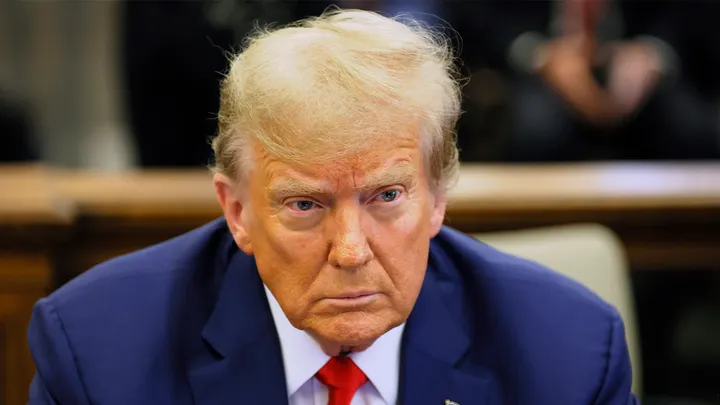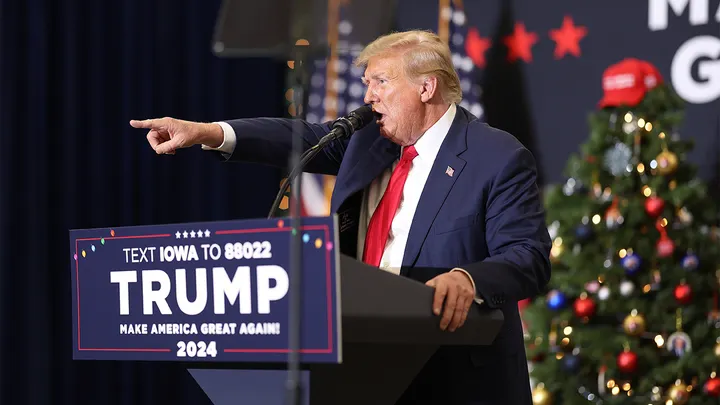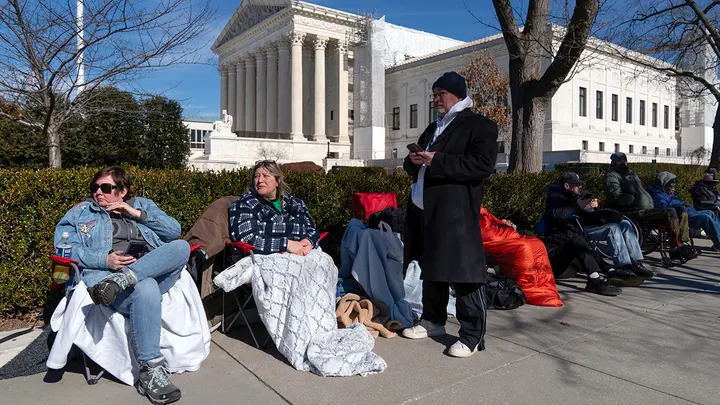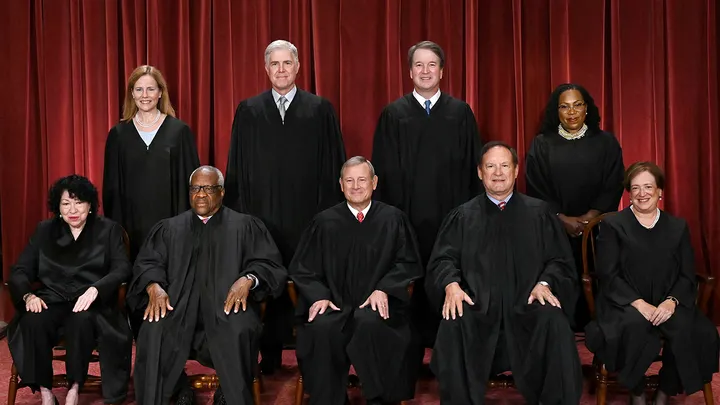Trump’s legal team calls removal of his opponent ‘anti-democratic’ before Supreme Court oral arguments

Today, the U.S. Supreme Court will deliberate on whether former President Donald Trump should be removed from Colorado’s primary ballot. This marks the beginning of what could potentially be a series of legal challenges against Trump that will be brought before the nine justices.
The key question at hand is whether Trump’s alleged actions of inciting a crowd to storm the U.S. Capitol on January 6, 2021, constitute “insurrection” and if this would render him constitutionally ineligible for reelection as president. This determination could prevent him from appearing on a state primary ballot as a candidate for the presidency.
Oral arguments are scheduled for Thursday at 10 a.m. Eastern Time, and a swift ruling may be issued within days or weeks. Spectators began lining up outside the U.S. Supreme Court building on Wednesday, equipped with blankets and chairs, hoping to secure one of the limited seats reserved for the public.
These issues have never been examined at the nation’s highest court. They are presented as both a constitutional and political battle, carrying significant implications for public trust in the judicial system and the already contentious electoral process.
In a written brief filed on Monday, Trump’s attorneys referenced the Iowa caucus, the Gettysburg Address, and Venezuela’s government while criticizing Colorado’s high court ruling that removed him from the ballot.
“President Donald J. Trump won the Iowa caucuses with the largest margin ever for a non-incumbent and the New Hampshire primary with the most votes of any candidate from either party. He is the presumptive Republican nominee and the leading candidate for President of the United States,” the Trump legal team wrote.

“In our system of ‘government of the people, by the people, [and] for the people,’ the American people—not courts or election officials—should choose the next President of the United States. Yet, at a time when the United States is threatening sanctions against the socialist dictatorship in Venezuela for excluding the leading opposition candidate for president from the ballot, respondent Anderson asks this Court to impose that same anti-democratic measure at home.”
Trump’s attorneys underscored that 60 state and federal courts across the country have declined to remove the former president from the ballot, labeling the Colorado Supreme Court as “the lone outlier.” They are urging the Supreme Court to overturn the Colorado ruling “and safeguard the rights of the tens of millions of Americans who wish to vote for President Trump.”
The Wording
The 14th Amendment, Section 3 of the Constitution states, “No person shall… hold any office… under the United States … who, having previously taken an oath, as a member of Congress, or as an officer of the United States… to support the Constitution of the United States, shall have engaged in insurrection or rebellion against the same, or given aid or comfort to the enemies thereof.”
In December, Colorado’s highest court ruled that this clause applies to Trump’s actions on Jan. 6, 2021, despite not being explicitly mentioned in the text, and therefore disqualifies him from holding the office of president.
“President Trump is disqualified from holding the office of president,” the state court wrote in an unsigned opinion. “Because he is disqualified, it would be a wrongful act under the election code for the secretary to list him as a candidate on the presidential primary ballot.”
The issue could turn on whether the high court interprets “officer of the United States” to apply to a president’s conduct in office.

The Arguments
In its merits brief, Trump’s legal team asserted, “The [Supreme] Court should put a swift and decisive end to these ballot-disqualification efforts, which threaten to disenfranchise tens of millions of Americans and which promise to unleash chaos and bedlam if other state courts and state officials follow Colorado’s lead and exclude the likely Republican presidential nominee from their ballots.”
Trump’s team argued that the Constitution treats the presidency differently from other federal offices. They pointed out that the president takes a distinct oath outlined in Article II, where the president pledges to “preserve, protect, and defend the Constitution of the United States,” without the term “support” as seen in Section 3.
However, in response, lawyers for the Colorado voters challenging Trump’s eligibility stated, “The thrust of Trump’s position is less legal than it is political. He not-so-subtly threatens ‘bedlam’ if he is not on the ballot. But we already saw the ‘bedlam’ Trump unleashed when he was on the ballot and lost. Section 3 is designed precisely to avoid giving oath-breaking insurrectionists like Trump the power to unleash such mayhem again.

“Nobody, not even a former President, is above the law,” the brief added, likening Trump to a “mob boss.”
Also at issue:
– Whether state courts or elected state officials can unilaterally enforce constitutional provisions and declare candidates ineligible for federal office — so-called “self-executing” authority — or is that exclusively the jurisdiction of the U.S. Congress? Also, whether Trump can be disqualified without a thorough fact-finding or criminal trial.
– Whether this issue is a purely “political” one that voters should ultimately decide.
– Whether the U.S. Senate’s acquittal at his impeachment trial on Jan. 6 makes him therefore eligible to seek re-election.
– And whether Section 3 prohibits individuals only from “holding” office, not from “seeking or winning” election to office.
